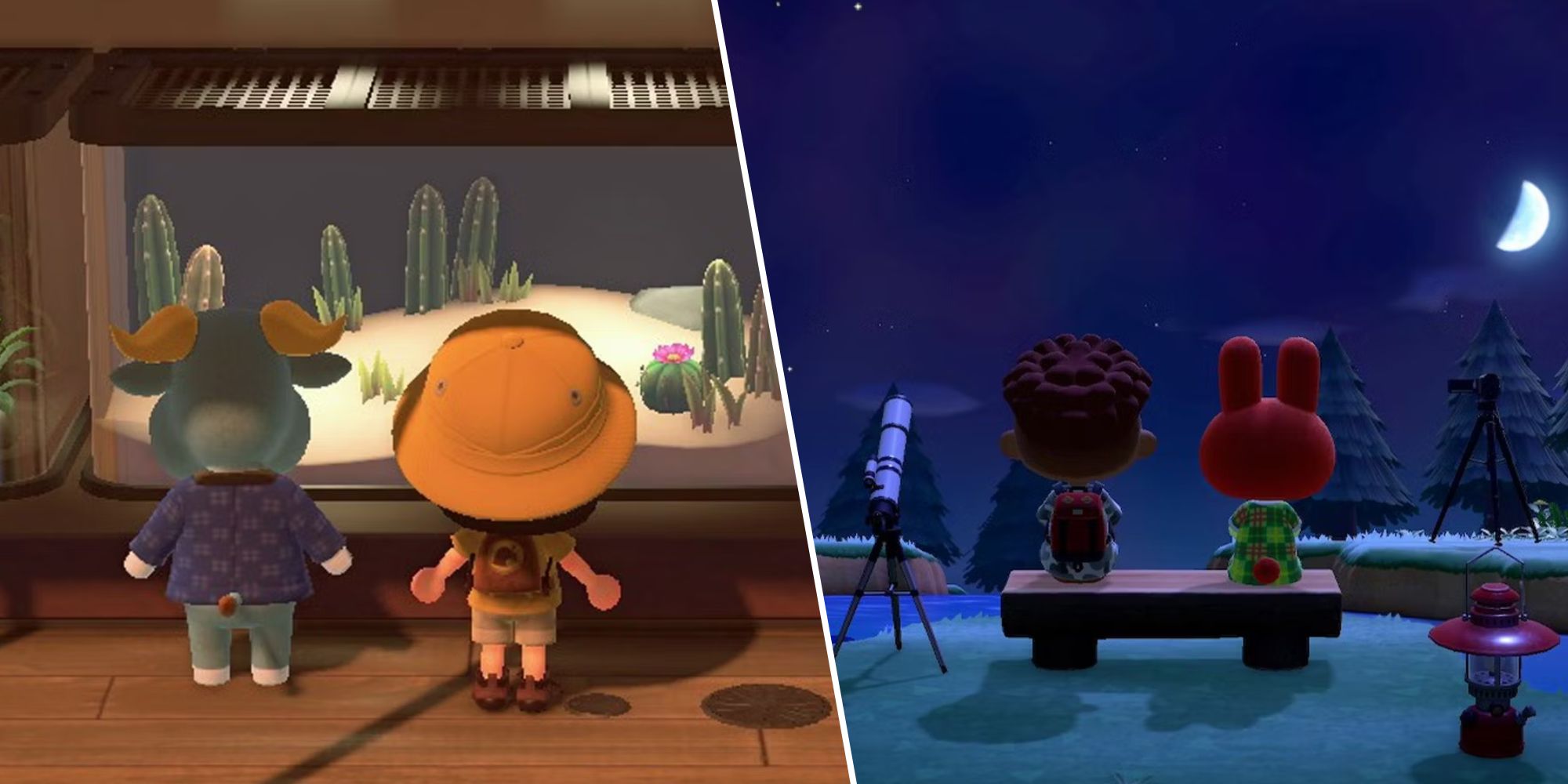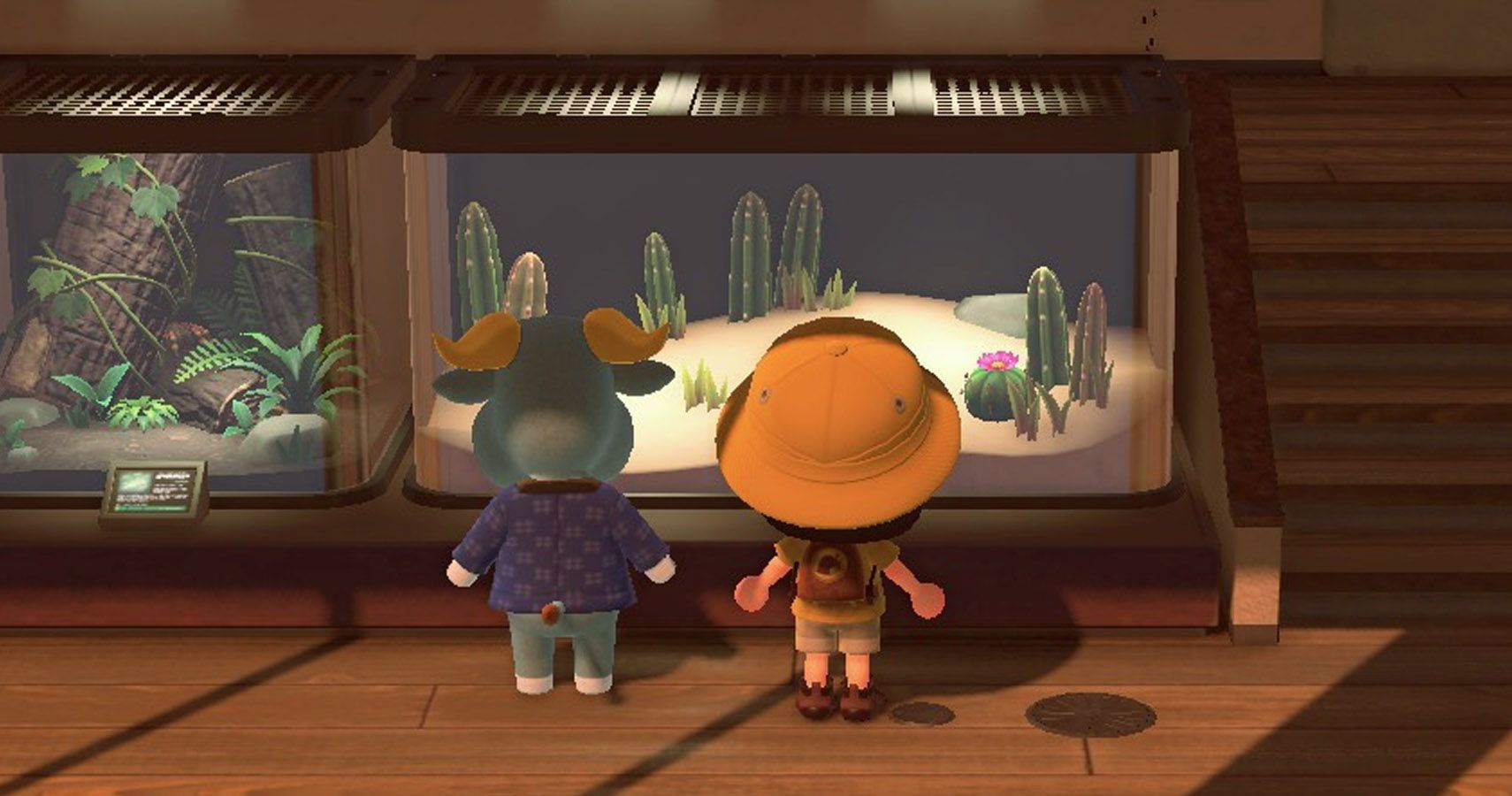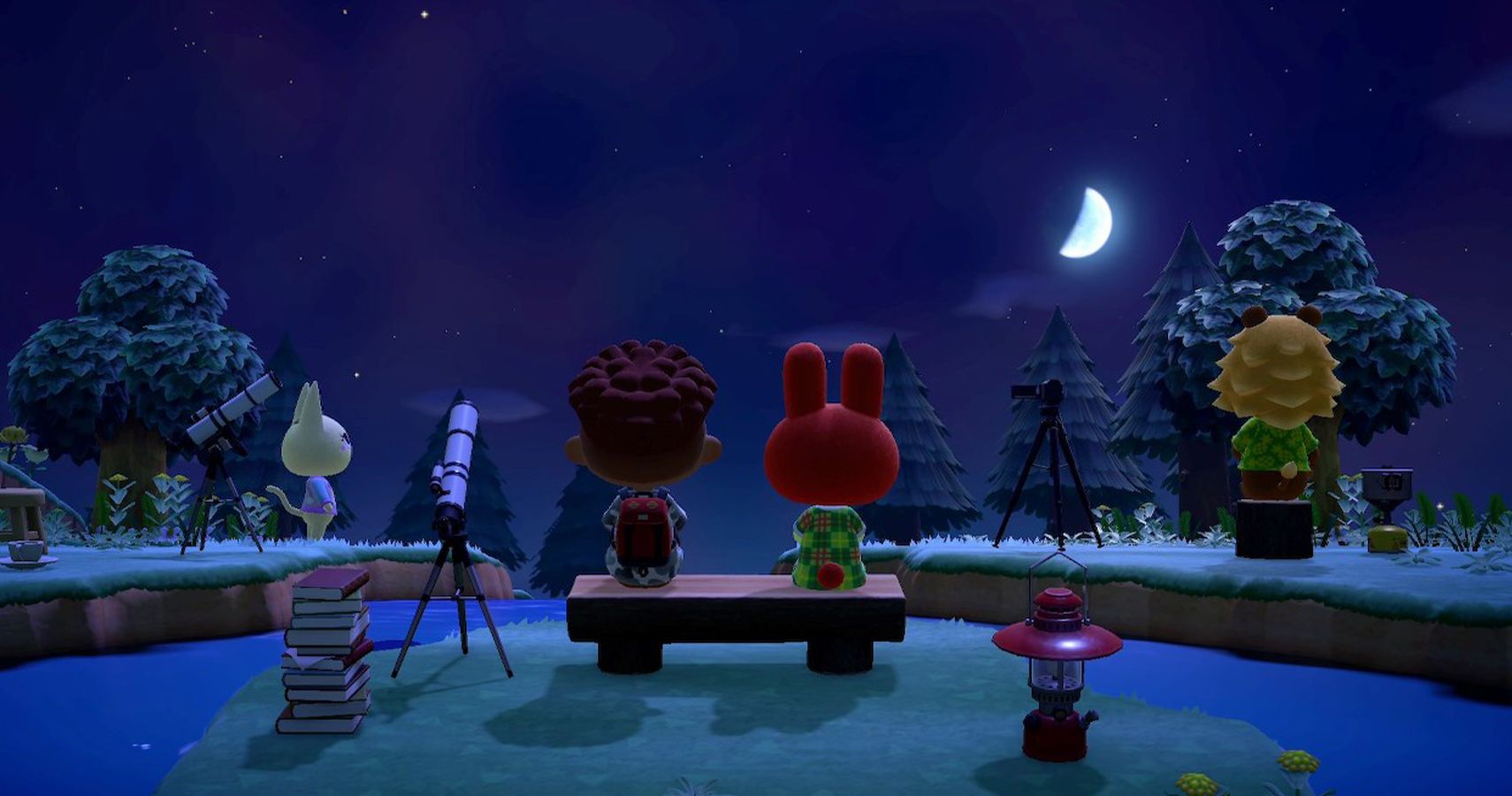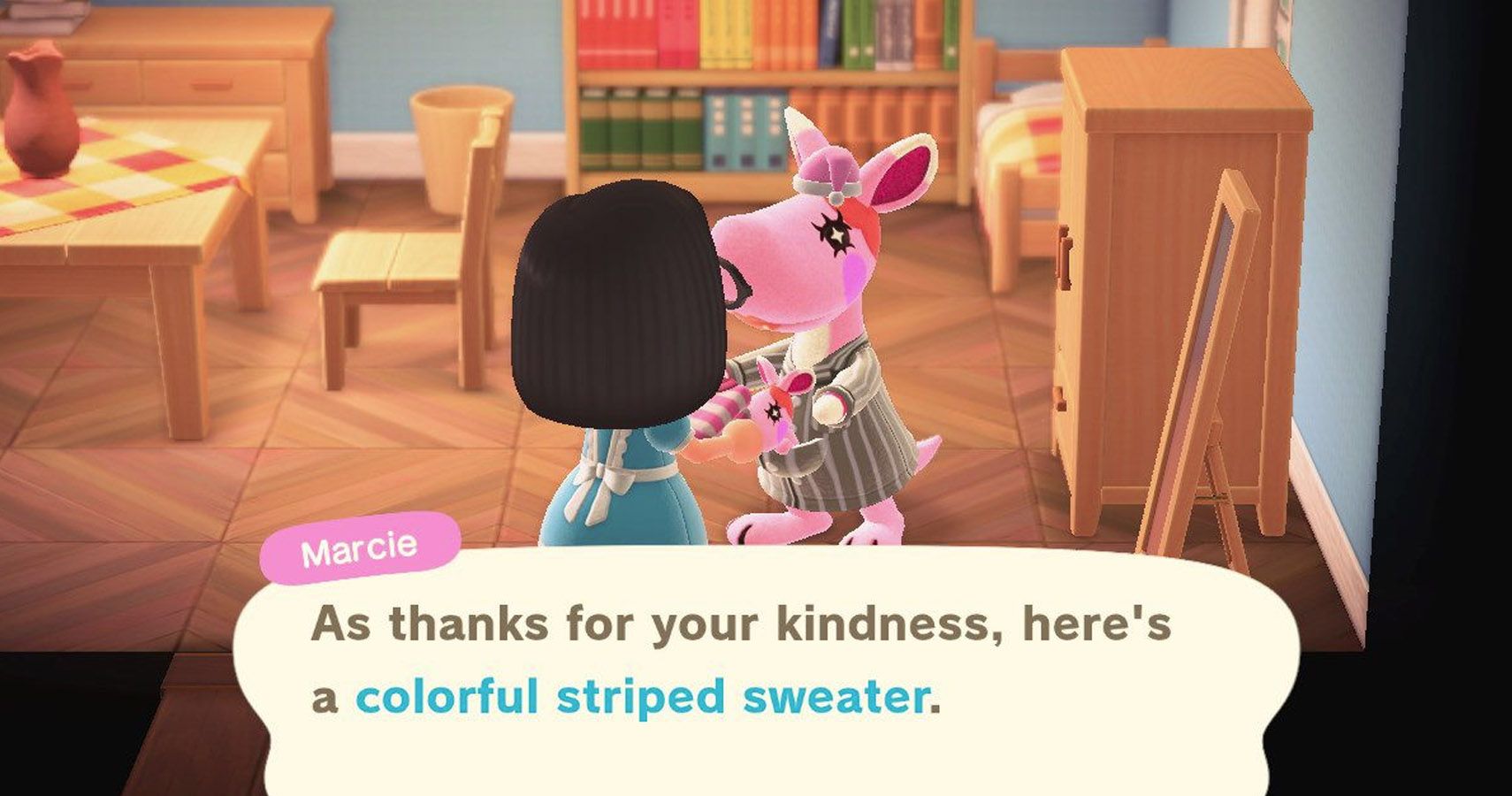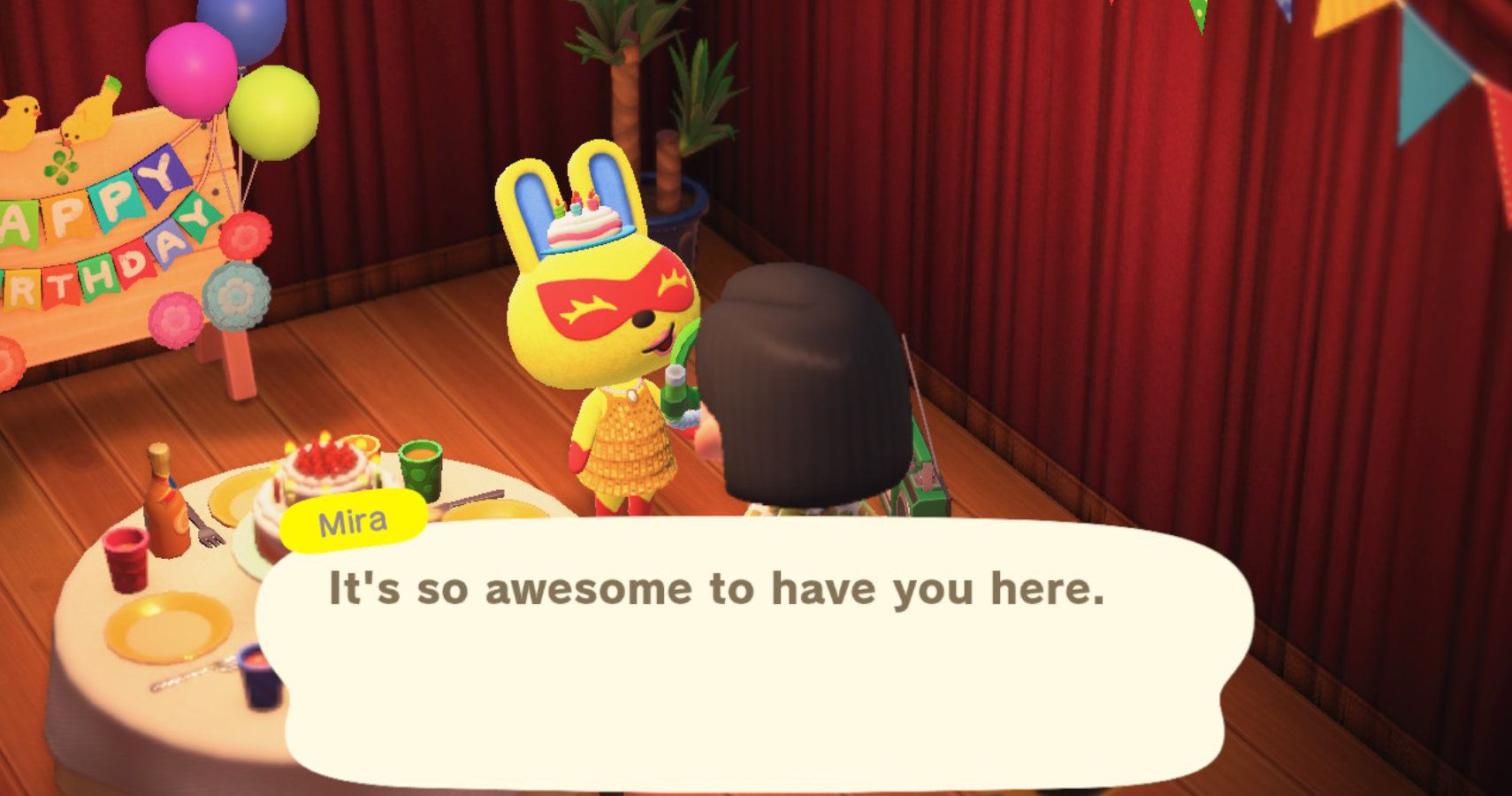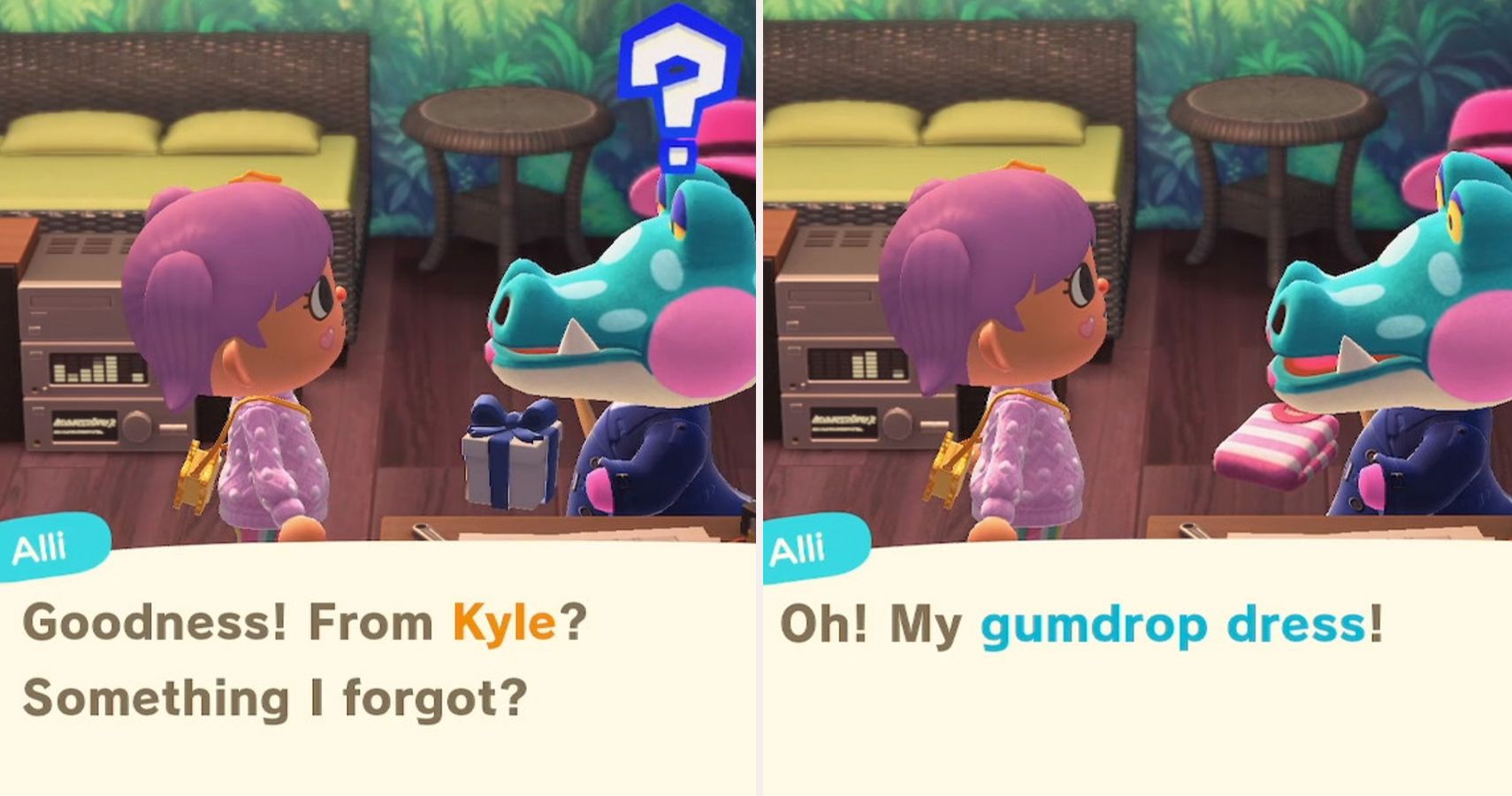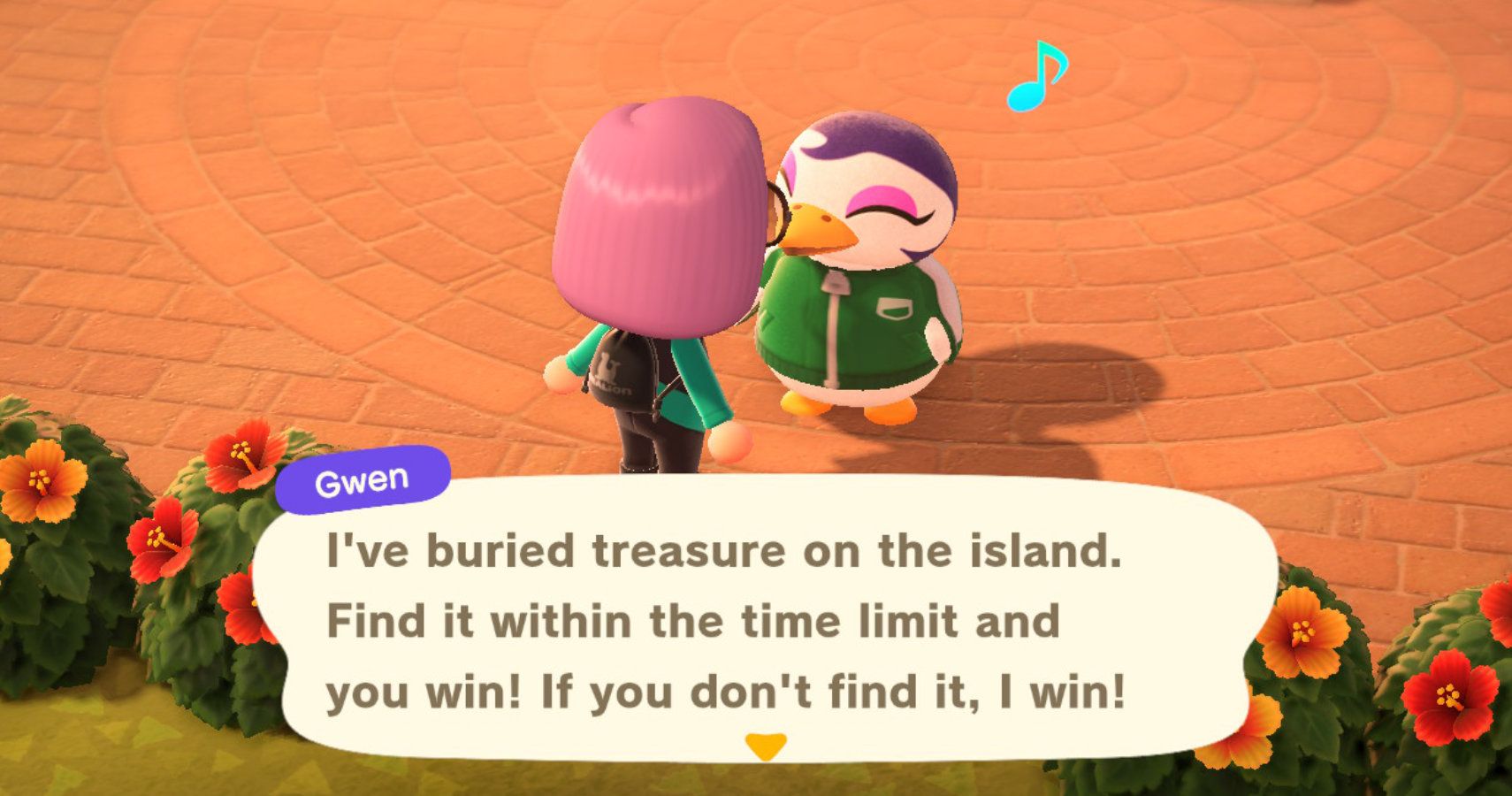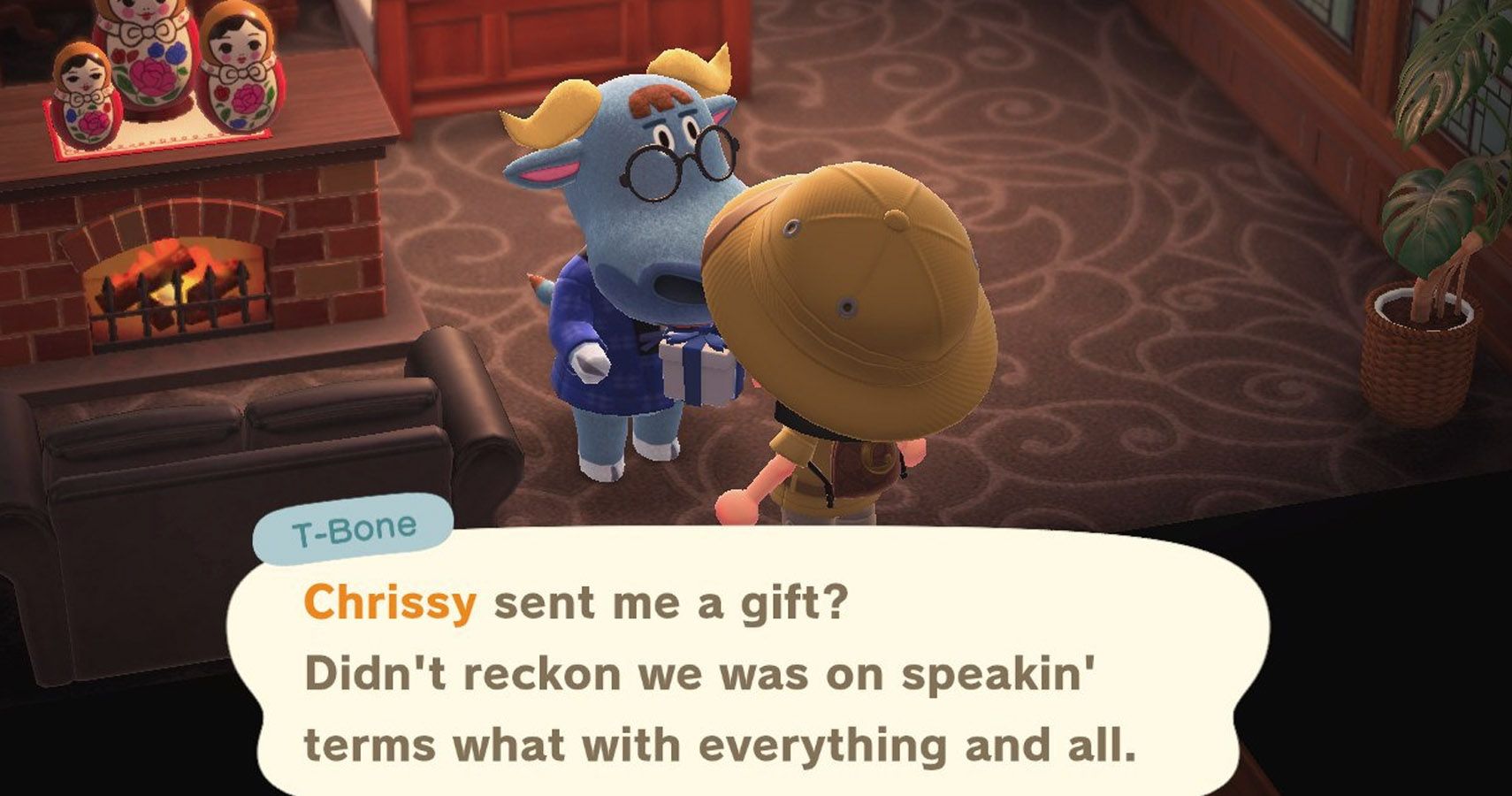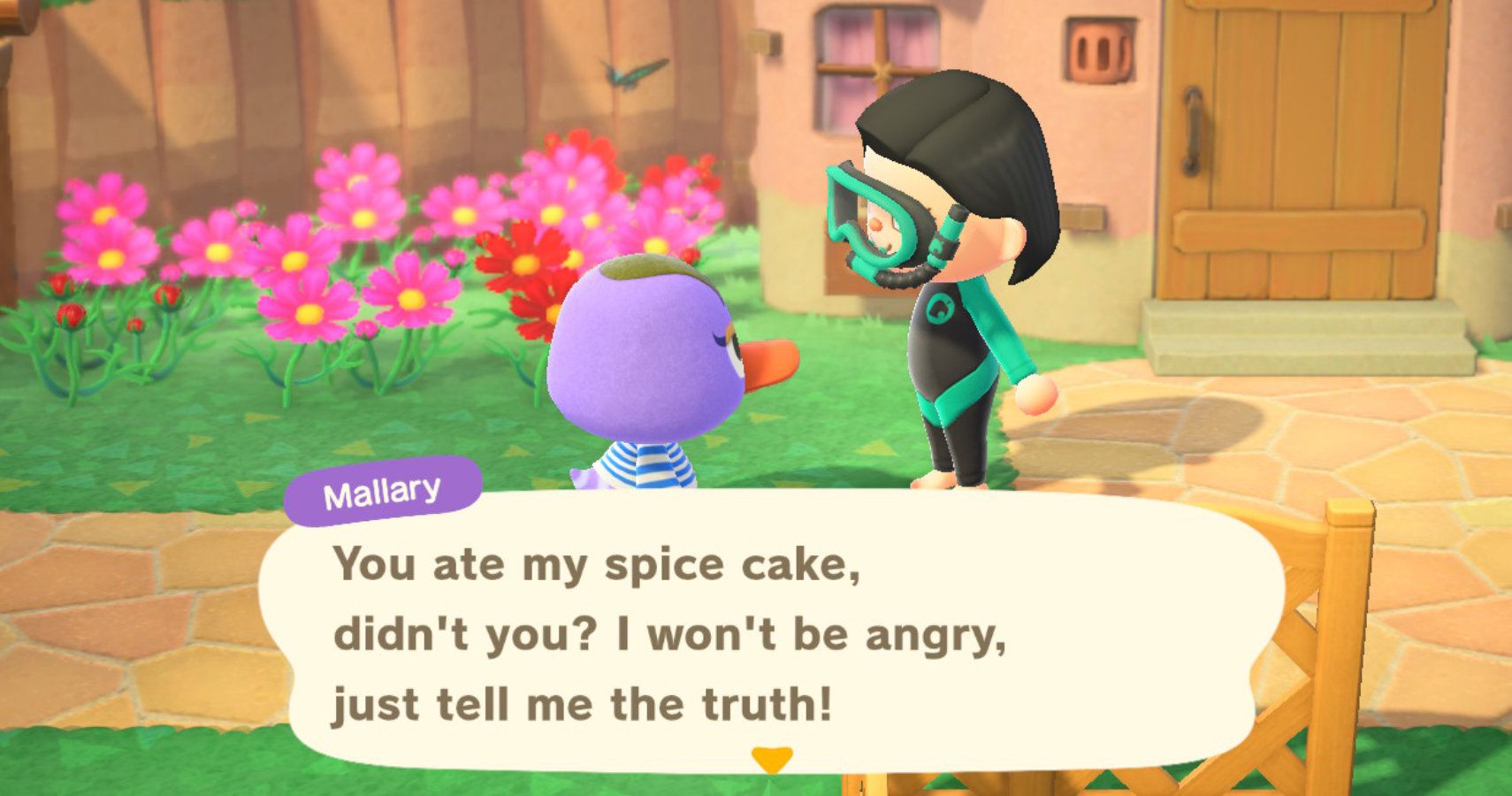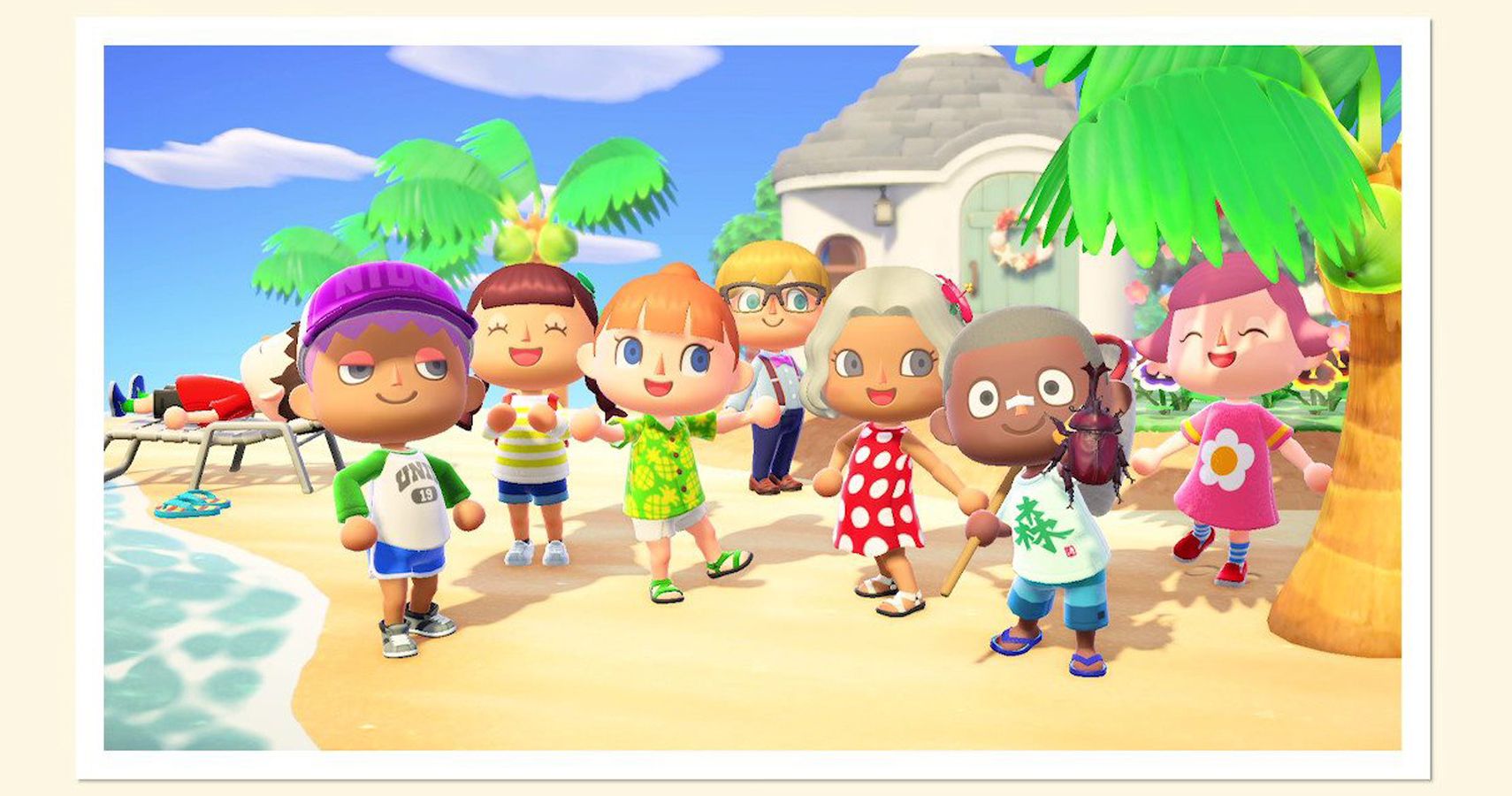Ever since the release of Animal Crossing: New Horizons, friendships with villagers have been a hot topic. Players have been trying to work out exactly what both increases and decreases their friendship levels, depending on how lucky they got with their starter villagers.
What helps your relationship? What hurts them? Wonder no longer, Island Representative; we have the answers. Here are the basics you need to know about making and breaking friendships in New Horizons.
Updated March 26, 2023, By Branden Lizardi: Managing your ACNH Friendship levels is certainly a task, possibly one of the most time-consuming and hard-to-measure tasks in the game. But time has passed since the game's final update was released, and the dust has settled. With it now in the twilight years, we're taking another look at this guide, cleaning it up, and getting it all nice and easy to read for anyone still looking to improve their villager relationships.
ACNH Friendship Levels
Relationships with villagers work on a points system. Every villager starts with 25 friendship points, which can be increased or decreased through interactions with them. As points increase, new interactions are unlocked as you go through the six levels, covering three tiers of friendship.
|
Friendship Level |
Point Range |
Unlocked Features Per Level |
|---|---|---|
|
Level One |
0 - 29 |
Villagers can give you gifts |
|
Level Two |
30 - 59 |
You can give villagers gifts |
|
Level Three |
60 - 99 |
Villagers sell you things and can give you a nickname |
|
Level Four |
100 - 149 |
Can change a villager's catchphrase |
|
Level Five |
150 - 199 |
Can change a villager's greeting, small chance to receive their photo |
|
Level Six |
200+ |
Villagers will ask you to buy things |
There is currently no way to check a friendship level with villagers, so noting which interactions are possible with each villager is the best way of monitoring progress. You'll also gain some Nook Rewards for specific tiers.
Increasing Friendship Levels
Some simple interactions will increase your friendship points with villagers. Here are the repeatable actions and their points value.
|
Action |
Reward Value |
|---|---|
|
Talking To A Villager Each Day (First Conversation Only) |
+1 |
|
Selling An Item To A Villager Based On Your Conversation |
+1 |
|
Catching A Villager's Fleas |
+5 |
You can also decrease your friendship with the following interactions.
|
Action |
Penalty Value |
|---|---|
|
Pushing A Villager |
-3 |
|
Hitting A Villager With A Net |
-3 |
|
Gifting A Villager Garbage or Spoiled Turnips |
-2 |
Sending letters has no effect on friendship levels. Neither do other interactions like hitting them with other items like axes or shovels, ignoring them, talking to them until they get fed up, or putting them in a pitfall trap. Trapping them with fences doesn't affect your friendships either. These things are just for fun.
If you accidentally push a villager or otherwise upset them, apologizing will give you a 20 percent chance of gaining back the lost friendship points.
If they display a good mood afterward, you can earn three bonus friendship points for your sincerity.
While these options are easy and repeatable with no cost except a little time, the biggest points boost comes with gifting.
Gifting Every Day
Gifts are the biggest point booster, and you can give villagers a gift every day. However, the point value varies depending on what you offer them. Here are the values for daily gifts.
|
Gifts |
Reward Value |
|---|---|
|
All Furniture |
+3 |
|
Flowers, Bugs, Fish, Umbrella, Watering Can, Fishing Rod |
+2 |
|
Preferred Clothing or Favorite Music |
+2 |
|
None-Preferred Clothing |
+1 |
|
All Other Items (Except Garbage and Spoiled Turnips) |
+1 |
You'll also gain a bonus friendship point for wrapping a gift with any wrapping paper you can buy in Nook's Cranny from the cabinet.
A villager's favorite music is the song playing in their house. If you have a frog villager, an umbrella as a gift only awards one point.
Birthday Gifts
Birthday gifts work a little differently. They are separated into tiers, with the points increasing for each level.
|
Tier |
Gifts |
Reward Value |
|---|---|---|
|
Tier One |
A Bug, Fish, Fossil, or Seashell Worth Up To 500 Bells |
+3 |
|
Any Other Item Worth Up To 125 Bells |
||
|
Tier Two |
A Bug, Fish, Fossil, or Seashell Worth 501 to 1,999 Bells |
+4 |
|
Any Other Item Worth 126 to 499 Bells |
||
|
Tier Three |
Items or Clothing They Already Own Or Clothing You Are Wearing |
+5 |
|
Turnips, Fruits, Cake, Or Mushrooms |
||
|
A Bug, Fish, Fossil, or Seashell Worth 2,000 Bells or More |
||
|
Any Other Item Worth 500 Bells or More |
Each tier also has an increasing bonus for gift wrapping. Tier one awards a one-point bonus, tier two a two-point bonus, and tier three a three-point bonus. This means that wrapping a piece of fruit is the cheapest and easiest way to get a maximum of eight points.
If you are trying to get rid of a villager, gifting them lost items, spoiled turnips, garbage, or weeds will bring your friendship points down by five.
Villager Quests
Occasionally villagers will give you quests. Completing these will award you one point plus a bonus of up to two more points, depending on your friendship tier and a little luck. Tier 1 awards one bonus point, while the second tier awards two. The third tier has a 50 percent chance of awarding one bonus point and a 50 percent chance of awarding two.
There are several types of quests: sickness quests, treasure hunts, lost items, delivery quests, and tasks to find specific bugs or fish. Each one has its own requirements and rewards. Here's what you need to know.
Sickness
If you enter a villager's home, there is a chance they are staying inside because they are sick. To complete this quest, give them medicine. If you speak to another villager who tells you about their sick friend, you can get a bonus point. To do this, have medicine before you visit and give it to the sick villager as soon as you speak to them.
If you tell a sick villager that you have medicine when you don't, you'll lose a point, so make sure you keep some on hand.
Treasure Hunt
A villager may occasionally task you with finding some buried treasure. An easy hunt will have a six-minute timer, while a difficult one gives you just three minutes. The hard quest awards a bonus point.
If you fail to complete the quest in time, keep searching. You can still gain a friendship point for presenting the item after the clock has run out, but you'll lose one if you give up.
Bugs or Fish
A villager may require a bug or fish. Hand it over for some easy friendship points. A bonus point is available for specific or high-value (over 2,000 bells) critters.
Lost Items
Lost items are books or bags you'll find lying around on the floor. If you ask a villager about them, they'll tell you who to return them to. You'll get two bonus points if you get lucky and return the item straight to its owner without speaking to anyone else. This is reduced to one if they ask you to find it beforehand.
With all these quests, a bonus can be gained if the villager approaches you first to start the quest rather than you talking to them. However, the final quests, delivery quests, work on a different system.
Villager Deliveries
Your villagers will occasionally get into some squabbles and ask you to intervene. In these situations, there is a quest giver and a recipient. The giver will offer you a wrapped gift and ask you to pass it to another villager. This needs to be done by either the end of the same day or the following day.
If you successfully complete the delivery, you'll gain three friendship points with the giver and recipient. If you unwrap the gift, you'll only receive one point from the recipient and none from the quest giver.
If you fail to complete the delivery, you'll lose friendship points with the giver of the quest, depending on the status of the gift. Those who remove the gift from their inventory, maybe placing it in storage or selling it to Timmy and Tommy, will lose three friendship points. If it's opened but still in your inventory, you'll only lose two points; if you didn't touch it, you'll lose one.
Tips And Tricks For Making And Breaking Friendships
This can seem overwhelming, but you can do a few simple things to ensure you're slowly building friendships over time. Here are our top tips.
- Run Around The Island Each Day: Start by chatting with the villagers outside and then call on those in their homes. This maximizes your chances of getting bonus points when quests appear. Villagers inside their homes will also offer you DIY recipes throughout the day.
- Keep Medicine In Your Inventory: This will make it much quicker for you to complete sickness quests and allow you to easily earn bonus points for doing so.
- Assess A Villagers Mood: If you see a villager in an angry or sad mood you can encouragement to cheer them up and earn three friendship points.
- Stock Up On Fruit: Keep some fruit around for a quick and easy gift. Wrapping it is also the best way to get a sweet eight points on a villagers birthday.
Friendship Rewards
Once you max out a friendship at level five you gain a chance to obtain a framed photo of that villager. It can be gifted to you in exchange for a daily gift or a tier-two or above birthday gift.
Photos may also be given for successful delivery and quests.
The chances of getting a photo increase as you max out the final level of friendship. Once you reach the 255 point cap, there is a 10.2 percent chance of gaining a photo per qualifying interaction.
Aside from this, the main reward is knowing the villager is less likely to leave. This is because the lower the friendship score with someone the more chance they have of deciding to pack up and live elsewhere.

